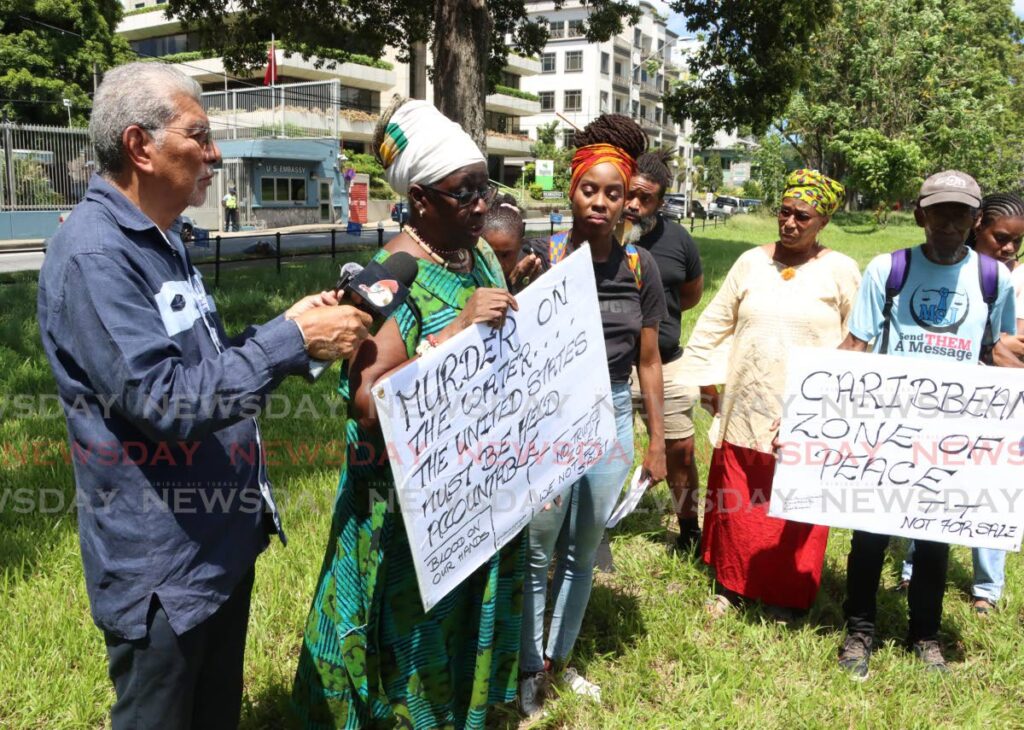On October 24, approximately 20 demonstrators gathered peacefully outside the US Embassy in Port of Spain, Trinidad and Tobago, to protest what they termed as US aggression in the Caribbean. The protest, held at Queen’s Park Savannah, was organized by activists and representatives from various civil society organizations, who called for the protection of regional sovereignty and the preservation of the Caribbean as a “zone of peace.”
Among the participants was Abeo Jackson, a radio/television host and new mother, who expressed deep concern over the future of her child in a region she believes is under threat. Jackson condemned the extrajudicial killing of 43 men by US forces in the Caribbean, which the US justified as an attack on narco-trafficking. She described the incident as a violent desecration of regional sovereignty and criticized the Trinidad and Tobago government for its silence on the matter.
“This is not about drugs. It is about natural resources, oil, and power,” Jackson asserted. She accused the government of aligning with US military objectives, calling it a betrayal of the Caribbean consensus that the region must remain a zone of peace. Jackson emphasized that Caribbean sovereignty is not for sale and that Caribbean lives should not be treated as collateral damage.
Shan-Nia Lewis, a young protester, delivered an impassioned speech linking global conflicts to regional vulnerability. She expressed frustration over the government’s silence following the deaths of two Trinidad and Tobago nationals allegedly killed in recent US airstrikes. Lewis warned that young people would bear the brunt of any escalation in regional tensions.
Zakiya Uzoma-Wadada, Chairman of the Emancipation Support Committee (ESC), also condemned US military operations in regional waters, describing them as a threat to peace and sovereignty. Wadada criticized the US’s intensified military buildup off Venezuela’s coast, calling it a reassertion of the Monroe Doctrine and a smokescreen for broader geopolitical objectives, including possible regime change in Venezuela.
David Abdulah, political leader of the Movement for Social Justice (MSJ), commended former Caricom heads of government for issuing a joint statement rejecting military intervention and reaffirming the region as a “zone of peace.” He condemned the recent docking of a US destroyer off Trinidad’s coast, calling it an “abomination” and warning that any attempt at regime change in Venezuela would destabilize the entire region.
The protesters collectively demanded an end to US military intervention in the Caribbean, urging regional unity and the protection of sovereignty and peace.
